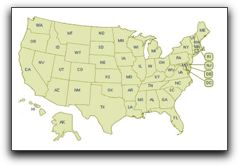 Natural language is, of course, engaging. It's the way that we talk, in a natural flow with relevant thoughts bubbling in and descriptive sentences playing out in rhythm.
Natural language is, of course, engaging. It's the way that we talk, in a natural flow with relevant thoughts bubbling in and descriptive sentences playing out in rhythm.
Writing web content in a natural tone is a good idea for a number of reasons. For starters, human readers want to engage with content that creates emotional interest. It is hard to create emotional interest with bullet points and lists (although these tools do have their place).
Natural language is what search engines are looking for when they read through your content for indexing. Search algorithms look for sentence structure and patterns that indicate natural language. Why? Because this is a good way to measure the integrity of a site, and to find keywords in context.
What is Natural Language?
Natural language includes extensive vocabulary, as well as commonly understood syntax. It is expressive, and rich with descriptive terms and added insight. Most importantly, natural language includes structure.
Building structure into content is where the trick is, and it can be intimidating for inexperienced writers. However, it isn't that hard once you establish a method for getting your ideas onto paper.
The opposite of natural language is when you use extensive lists, bullet points, and 'word clouds'. As I mentioned, these tools do have their place, but they are not considered 'natural language' tools, and are not considered good practice in an organic content writing campaign.
Good examples of natural writing for marketing content can be found in our ListPipe blogs.




